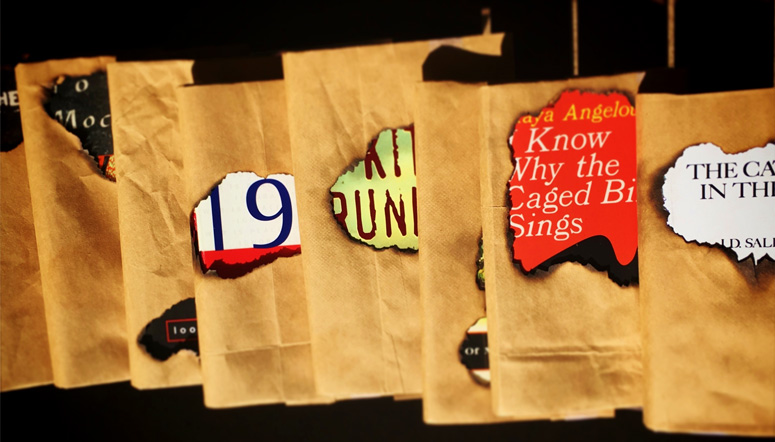
Book Banning, something that has become a more wide spread concern within the most recent years especially due to state government involvement in what should or shouldn’t be allowed. Because of this increase, it is easy for us to be frightened or disheartened when seeing list upon list of various banned books with common themes of portraying life from a different perspective whether it be race, sexuality, or gender.
However there is still hope, not everyone is advocating for the removal of literature. There are still those who champion novels based on their content. Take for example the open letter from our reading of this module. In it, the author, Bill Konigsberg, writes to the Elliots known for their push to ban 282 books in a Texas school district due to inappropriate material. While much of the response is focused on Konigsberg’s own novel The Bridge, a section speaks to me and I think is important to remember. He writes “do you think there should be books in the library that might help a depressed teenager feel a bit more understood? A book that stresses the importance of staying another day, even when everything feels hopeless? Knowing how concerned you are for the safety of your daughter, I would actually guess you would want a book like that available to your child when she gets older. Perhaps I am wrong” (Konigsberg 2022). This is something that we should remember in a case of a book being challenged if we are faced with that. We need to consider not just the concerns of the one individual who brings the complaint, but how the removal of material would affect the community overall.
What can we do about book banning? Handle it as best as we can when we are faced with it. Some places will be easier to deal with with little to no challenged books and others will have very high levels. What it takes is understanding and remembering how according to the ALA an important part of the Library Bill of Rights is that “a primary goal of the library profession is to facilitate access to all points of view on current and historical issues” (ALA.org). In applying to banned or challenged books, this involves librarians having to utilize careful consideration of the material in question.
Works Cited:
Admin. (2019, July 13). Restricted access to library materials: An interpretation of the library bill of rights. Advocacy, Legislation & Issues. https://www.ala.org/advocacy/intfreedom/librarybill/interpretations/restrictedaccess
Konigsberg, B. (2022, February 20). An open letter to parents who wish to ban my books from School Libraries. An Open Letter to Parents Who Wish to Ban My Books From School Libraries. https://billkonigsberg.com/an-open-letter-to-parents-who-wish-to-ban-my-books-from-school-libraries/
Weeks, P. (2020, September 21). The fiery history of banned books [Video]. YouTube. https://www.youtube.com/watch?v=xpKqRC-9Avc&t=388s
Thanks for keeping hope alive and putting our current challenges in historical perspective. Loved the video at the end.
@kmg333 That Konigsberg quote is powerful. I was just listening to a podcast with an author who said how important it was for everyone’s story to be told. The author emphasize that stories can have a huge impact on others who might be experiencing the same thing.